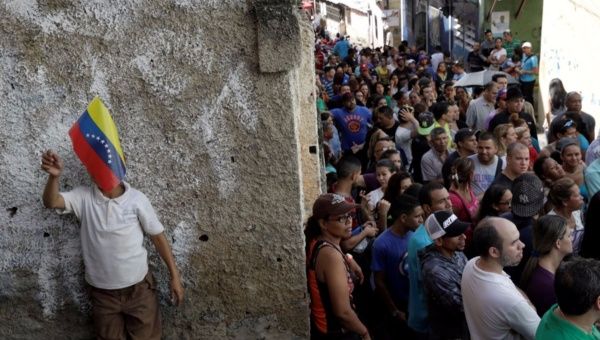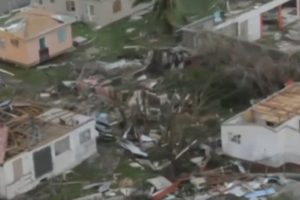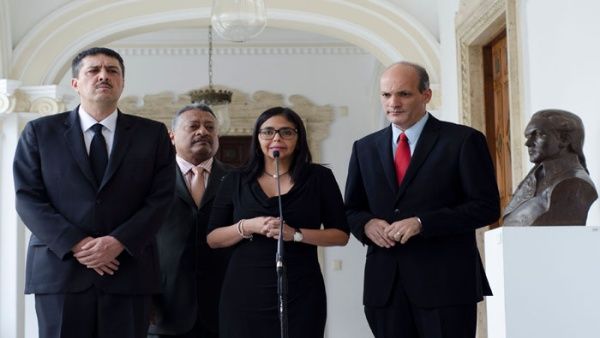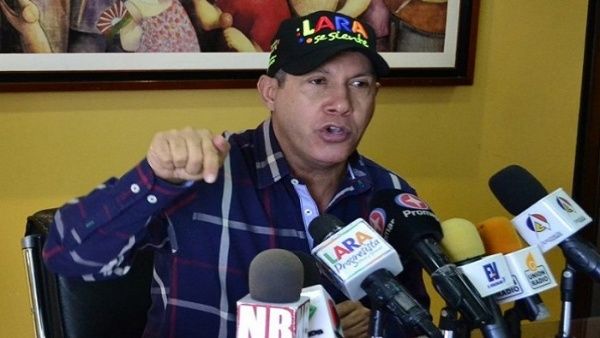Chavismo Is Alive and Well – a First Analysis of the Regional Elections
By: Mision Verdad

Venezuelan citizens wait in line at a polling station during a nationwide election for new governors in Caracas, Venezuela. | Photo: Reuters
Published 16 October 2017
Chavismo won an important victory in the regional elections of October 15.
These regional elections took place after having been preceded by a cycle of violence promoted by anti-Chavista forces both inside and outside Venezuela. After four months of violence from April to July and efforts by Venezuela’s political opposition to boycott the elections to the National Constituent Assembly at the end of July, Chavismo’s forces managed to turn the conflict to an electoral one. The narrative that a “dictatorship” exists in Venezuela was undone by the United Democratic Table (MUD) opposition alliance’s participation in these regional elections.
Venezuela is also suffering a cycle of political and economic sanctions under the auspices of the White House arguing the absence of democratic guarantees in Venezuela. The Organization of American States (OAS), clearly managed by the United States, also uses the same argument and on various occasions has held activities questioning the regional elections’ legitimacy, even omitting to note that the opposition political parties are taking part in them.
On Sunday, Oct. 15, President Nicolas Maduro criticized the corporate media silence on the elections and the governments and politicians who have cast doubt on the legitimacy of Venezuela’s democracy by trying to hide the elections and their results. He pointed out the dangers of insisting on calling Venezuela and outlaw anti-democratic State, concluding “Venezuela has shown the world we live in a full democracy."
Despite these influences, the institutional stability Chavismo has achieved in Venezuela enabled the authorities to organize these elections and to corral into that political framework the forces inside and outside Venezuela that have tried to undermine the stability of Venezuela’s institutions by pushing the country into the beginnings of a civil war.
The results
61.14 percent of eligible voters participated in the elections. For this type of election that figure is considered to represent a high level of participation, superior to similar elections in other countries like Colombia, Chile, Argentina or Mexico, or in other parts of the world, for example the United States, France or Germany.
Nationally, Chavismo received 54 percent of the total vote, reestablishing the pattern for other more prominent elections to public office. For their part, the MUD won 45 percent of the votes. Chavismo wont 75 percent of the state governorships, 17 out of a total of 23. The MUD won 5 governorships with just one state, Bolivar, still to be called.
However, this solid victory also has a strong symbolic meaning, for example historically pro-opposition states like Lara, Miranda y Amazonas, usually opposition trampolines in maneuvers for Presidential elections, were won by Chavista candidates by a good margin. From the perspective of governorships supposedly serving as an alternative political model to Chavismo, in effect the MUD opposition yesterday lost three states crucial to their presidential aspirations. Opposition leaders like Henri Falcon and Henrique Capriles have lost ground and now lack a power base from which to launch more important political campaigns.
In terms of the national vote, leaving out the results yet to be announced from the state of Bolivar, Chavismo got more than 5.2 million votes, a number that will increase once 100 percent of the voting returns are in, while the MUD got a rounded up figure of 4.5 million.
Some comparisons are worth noting in relation to that statistic. The MUD dropped almost 3 million votes in comparison with their best ever result in the parliamentary elections of 2015 of more than 7 million votes. Whereas Chavismo, intimidated and blockaded by the United States, its regional allies and some European countries managed to maintain and recover its political capital in a very adverse moment.
Chavismo’s victory can be gauged not just by the number of governorships it won and the votes it got but by the electoral decline of the MUD, who had hoped to capitalize on the economic discontent they have helped to foment, it should be noted, from the legislature they control and via the U.S. financial sanctions they demanded.
Political factors affecting the results
A quick review offers some outstanding factors that explain the Chavista victory. Among the most relevant are:
- in a situation of economic adversity Chavismo set up safety net systems of food support which reached a great many people. The Local Supply and Production Committees (CLAP) have been key in protecting broad sectors of the population, containing the spread of the price and supply chaos used to attack Venezuela’s economy. In August, the percentage of the population covered by the CLAPs increased by 58 percent, reaching 9 million families.
- Venezuela’s State policy to make its social programs more efficient and better focused, known as the Patriotic Card, has been effective in organizing socially vulnerable parts of the population. While the MUD’s electoral campaign, given the current bad economic situation, offered no concrete solutions, which directly affected their electoral support.
- Chavismo’ electoral organization and its election campaign, offering solutions to the main demands of the population, worked well together. Many voters saw Chavismo as the political force best able to take on the major tasks and challenges facing the regional governments.
- The Trump Administration’s sanctions and the open intervention by the U.S. government gave more cohesion to the Chavistas and significantly increased the role of national defense, security, independence and sovereignty as ideals able to mobilize support for Chavismo. Even Datanalisis, one of the most influential opposition aligned polling companies, acknowledged that approval of President Maduro had increased by almost 6 percent by the end of September.
- The MUD’s violence and their leadership’s frequent visits overseas, calling for sanctions against Venezuela, worked in a similar way. Chavismo articulated a campaign advocating political peace and rejecting foreign intervention, which thus polarized the political scene between those trying to destroy the country and those seeking peaceful solutions to the country’s problems.
- By setting aside narrow administrative or local regional electoral issues, Chavismo managed to make the central political argument turn on the choice between political stability and order or anarchy and ungovernability.
- Chavismo went into these regional elections with both new regional leaderships and also already well consolidated leaders too. So their candidates in large part looked fresh and new, while, for the opposition, the mixture of little known leaders and discredited mayors and political machines yielded poor results and were a direct cause of big losses in some states.
- Chavismo as a political identity is also a factor to take into account. It has solid bastions in the country’s interior. Its revolutionary forces won by large margins, paradoxically in some of the states worst hit by the economic crisis. This is only explicable by the high level of community political consciousness. In the context of the economic intimidation by the business and commercial sectors allied with the MUD, Chavismo has operated on the very simple logic of opposing their efforts at extortion. As a result, Chavista supporters voted by way of punishing the people promoting the economic warfare associated with the MUD.
- The violence from April through July, which caused 147 deaths and incalculable damage to public and private property, along with the street terrorism and paramilitary style violence, traumatized Venezuela’s society splitting the opposition itself into those for the violence and those against it.
- An electoral paradox resulted by which there were opposition supporters who did not vote for the MUD because they saw it as violent. But also significant sectors of the opposition who had fervently believed in the overthrow of Chavismo felt frustrated when the MUD decided to participate in the elections. Both groups, especially the second, expressed disenchantment with the MUD leadership which they regarded as treacherous, erratic and incoherent. Electoral abstention worked against the MUD.
- The still fresh images of the violence and terrorism that almost sunk Venezuela into chaos between April and July, leaving over 100 people dead, created an electoral climate outside committed opposition followers unfavorable for the MUD in terms of electoral support. The MUD’s failure to bring about the overthrow of the government strengthened perceptions of Chavismo as representing order and stability. In times of stress, insecurity about the future and continuing turbulence those perceptions attracted support among the population.
- Part of the electorate rejected the Trump Administration’s overall measures of economic suffocation which the MUD leadership has consistently demanded. When it came to the vote, most people were opposed to that economic intervention which only complicated their lives for the worse.
- The loss of MUD bastions like the states of Lara, Miranda and Amazonas, indicates that regional governments under the MUD are not regarded as being effective or in tune with the population’s expectations. The perception that the MUD is an organization associated with broken promises damaged electoral support even among its followers, not just in the three states mentioned, but in many others too. The MUD is not well regarded in terms of regional government.
- The MUD’s rhetoric, monotonously focused on condemning President Maduro’s government as a “dictatorship”, failed. That rhetoric did not mobilize support because it focused on attacking Chavismo. But in regional elections it is essential to offer effective responses to popular demands and that was absent from the MUD’s campaign, which was demagogic across the board offering few responses to the populations immediate demands.
Translated by Les Blough of Axis of Logic.
https://www.telesurtv.net/english/opini ... -0023.html
Latin America Leftists Congratulate Venezuelan Socialists on Election Win
Published 16 October 2017 (20 hours 0 minutes ago)
by Jean Ziegler and Sofia Monsalve
“Congratulations Venezuela for democracy won over intervention and conspiracy," Bolivia's President wrote.
Venezuelan President Nicolas Maduro has received praise from across Latin America for Sunday's regional election where Socialists won 75 percent of the posts.
“Congratulations Venezuela for democracy won over intervention and conspiracy. The people defend their sovereignty, dignity and natural resources,” Bolivian President Evo Morales tweeted in light of Maduro's socialist party, or PSUV, winning at least 17 out of 22 governorships
Morales' sentiment was shared by the heads of state of Cuba and Nicaragua.
Cuban President Raul Castro stated that Venezuela has provided the world with another “big lesson on peace, democratic vocation, courage and dignity.” He went on to note that the spirit of Chavez lives on, that “he and Fidel would be very proud of the victory” and the people of Venezuela can “always count on Cuba's support and solidairty.”
Meanwhile, Nicaraguan President Daniel Ortega released a statement congratulating Venezuelan families and the people for Sunday's victory. He characterized the win as a “heroic victory” given the “cruel economic, political, communication and cultural wars” waged against the Venezuelan people.
Latin America's former presidents also expressed their support, including Ecuadorean President Rafael Correa who tweeted: “Venezuela experienced a celebration of democracy. The Bolivarian Revolution amply won the gubernatorial elections.”
The ex-President of Honduras, Manuel Zelaya, released a public statement referring to Sunday's election as a “victory against the criminal attack campaigns orchestrated by the United States against a democratic people who seek dialogue and peace.”
During a speech on election night, Maduro thanked his colleagues for expressing their support for the peaceful, well-organized election.
International guests observing the vote also praised the electoral process for its transparency. The Argentine journalist Pedro Bregier said he and his colleagues had seen no irregularities in the western state of Zulia, an observation echoed by his colleagues around the country.
The Ecuadorean representative of the Council of Electoral Experts of Latin America, CEELA, Alfredo Arevalo said: "It is one of the best electoral processes, audited many times by all parties and political actors."
https://www.telesurtv.net/english/news/ ... -0020.html






